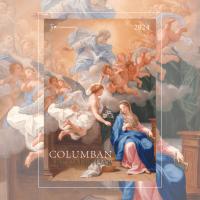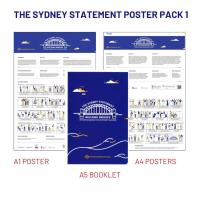
Participants of Youth PoWR consultation in Lakemba. Photo: CCCMR
The concept of ‘us’ versus ‘them’ is not new. Human beings have abided by this principle for a long time. As history shows, we are wary of those who are different from us and are quick to discriminate based on biological, social and economic factors. At present, with the advent of technology, social media and fake news, we have greater access to those who are different from us. And when there is greater access to diversity, there is also a greater risk of discrimination.
The Sydney Statement was drafted out of a clear need to build bridges through interfaith dialogue. What is unique about the Statement is that it was generated by young adults from Youth PoWR (Parliament of the World’s Religions) in consultation with academic researchers from Western Sydney University and religious elders. The input from these groups gave the Statement a more holistic approach to interfaith dialogue.
Firstly, it identified common values that religions share, namely ‘self-transcendence, peace, justice, mercy, compassion, truth, forgiveness, solidarity, reconciliation, returning good for evil, the sanctity of human life, respect for all beings, and care for our common home[1]’. These are values that contribute to a society’s wellbeing. Conversely, the misinterpretation and manipulation of religion and its negative impacts have been barriers to that very wellbeing of society.
Given the rich diversity of our region, the Statement is a blueprint for interfaith dialogue. The five types of dialogue—Life, Action, Knowledge, Religious Experience and Intra-faith—identify different aspects of interfaith relations. By proposing commitments and practical suggestions in each of these areas, the Statement encourages us to not only be aware of ourselves and our actions but also of others.
Sharing and respect were important aspects of my upbringing in southern India. My mother grew up in a community that was ethnically and religiously diverse. I used to listen to stories of her childhood, about how it was almost a tradition in her community to include their neighbours in each other’s religious festivals. During the Christmas season my grandparents would invite their neighbours over for a Christmas dinner and exchange stories from the different Abrahamic religions. Similarly, on the day of Eid, her neighbours from the Islamic faith used to stop by with an assortment of savoury and sweet treats.
I still remember the fondness with which she told these stories. What stuck with me is that my mother claimed that by being open and understanding, she was able to understand her own faith better.
I grew up in a country where people are sometimes violently discriminated against based on their religion. But having listened to my mother and experienced true and meaningful friendships built on the foundation of mutual respect, I understand what it means to be accepted. Every single human being has the right to feel that way. The goal of The Sydney Statement is to foster a community in which individuals are not only free to practice their religion without prejudice but also are given the dignity, respect and acceptance they are due. That is what builds a strong community.
The Sydney Statement is an ambitious charter. However, it is not unachievable. In fact, carrying out the commitments set out in the Statement will forge peaceful co-existence in our multi-cultural and multi-religious society. Through its commitments, The Sydney Statement envisions a community that stands in solidarity during times of trouble, and that upholds the principles of democracy, secularism and rule of law. More importantly, it envisions a community to which people are proud to belong. With everything that is happening around us, it is our moral obligation to achieve the goals it sets forth. As an interfaith charter created by young people from different religions, The Sydney Statement calls us to lead the vibrant multi-religious society we inherited and make it even better.
Samantha Tom Cherian, Youth and Networking Coordinator, Columban Centre for Christian Muslim Relations.
Related links
- Read more from the current Columban Interfaith eBulletin - October 2021



